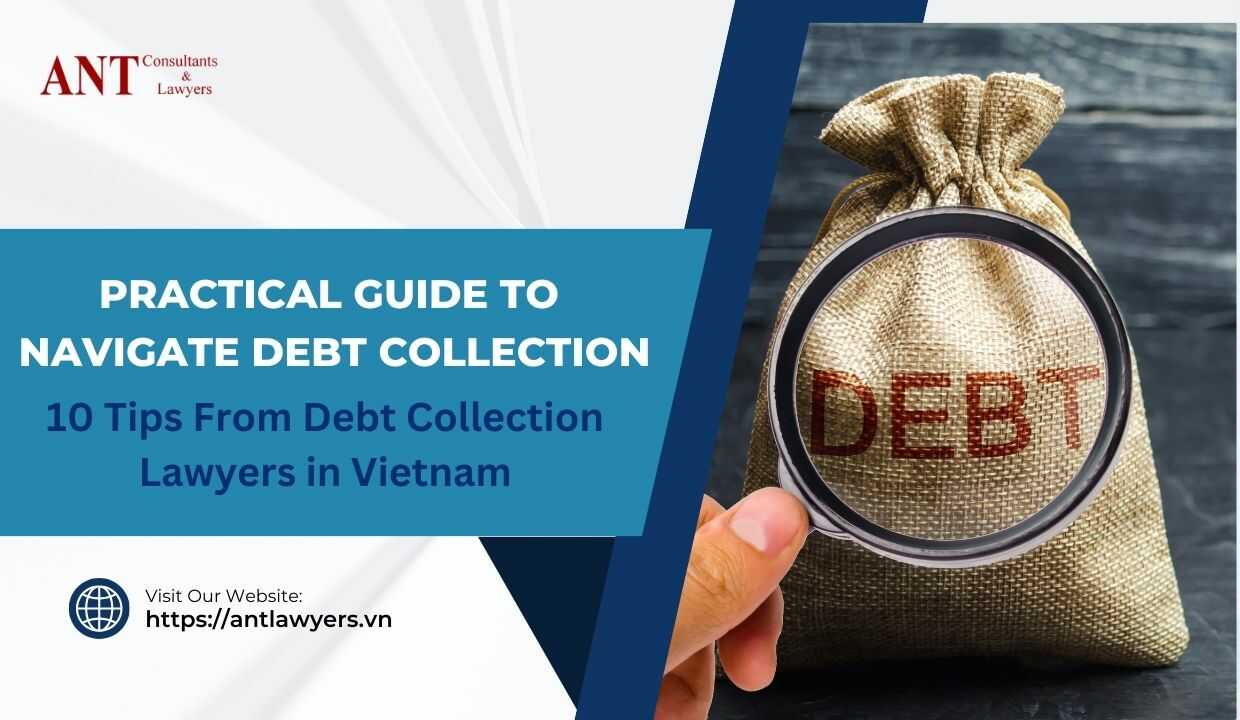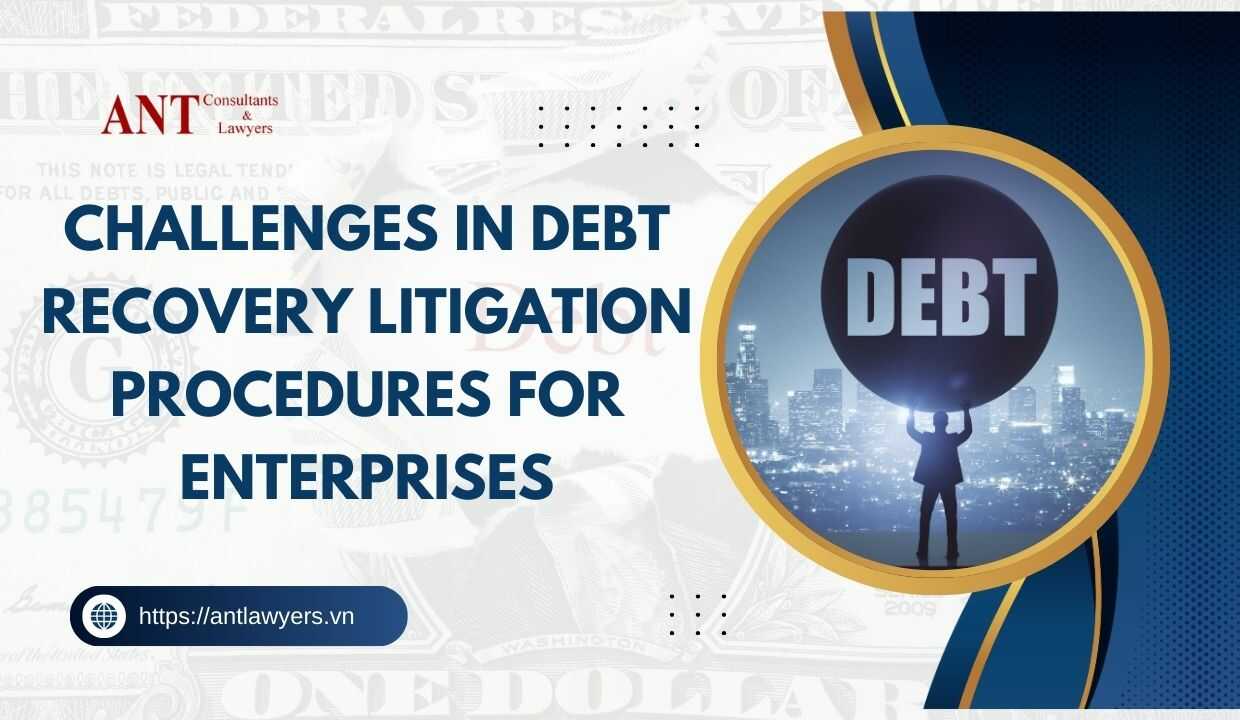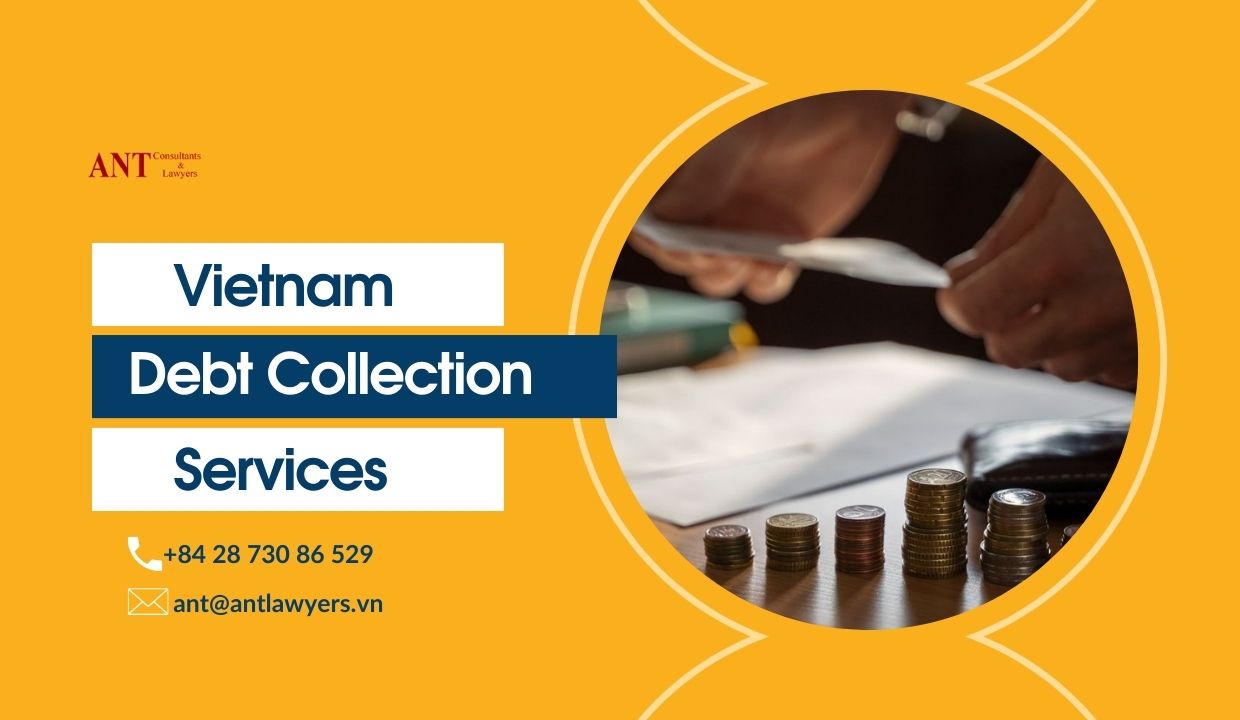When doing business or entering into financial agreements in Vietnam, unforeseen disputes can arise, especially concerning debts. Delayed payments or failure to fulfill financial obligations can disrupt operations, damage relationships, and lead to financial losses. Navigating such situations requires a thorough understanding of the legal landscape and the expertise of debt collection lawyers in Vietnam.
In here, from our experience, we discuss the overview of the subject, offering valuable insights for foreigners encountering debt-related disputes in Vietnam.

Understanding Debt Disputes in Vietnam
Debt disputes in Vietnam can arise in various contexts, such as:
- Delayed Payments: A common issue where a debtor fails to pay within the agreed timeframe.
- Unpaid Invoices: Occurs when businesses, especially in trade, face clients who neglect to settle their invoices.
- Loan Defaults: Includes situations where individuals or businesses fail to repay loans.
- Cross-Border Transactions: Foreign creditors may face challenges recovering debts from Vietnamese parties due to differences in legal systems.
- Breach of Contract: Non-compliance with agreed-upon payment terms in business agreements can result in financial disputes.
- Corporate Disputes: Internal disagreements in joint ventures or partnerships may lead to debt-related issues.
These scenarios often require legal intervention, highlighting the need for debt collection lawyers in Vietnam. Understanding their role is essential to resolving such disputes efficiently and effectively.
What Do Debt Collection Lawyers in Vietnam Do?
Debt collection lawyers in Vietnam provide specialized services to recover debts lawfully and ethically. Their responsibilities include:
- Legal Advice: Advising clients on legal remedies available under Vietnamese law.
- Drafting and Sending Demand Letters: Initiating formal requests for payment.
- Negotiation and Mediation: Attempting to resolve disputes amicably to save time and costs.
- Arbitration and Litigation: Representing clients in arbitration proceedings or court cases when amicable solutions fail.
- Enforcing Judgments: Assisting in implementing court rulings, such as seizing assets or garnishing wages.
- Cross-Border Debt Recovery: Managing international debt disputes by bridging legal and language barriers.
- Debt Verification: Assessing and verifying the legitimacy and enforceability of claims before initiating recovery efforts.
- Consulting on Preventative Measures: Helping clients establish systems to minimize future debt-related disputes.
Given the complex nature of debt recovery, engaging debt collection lawyers in Vietnam ensures that the process adheres to local laws while protecting the creditor’s rights.
The Ban on Traditional Debt Collection Services in Vietnam
Vietnam has recently taken a bold step by prohibiting traditional debt collection services due to the significant negative social impacts they have caused over the years. This ban reflects the government’s commitment to maintaining public order and promoting ethical business practices. Traditional debt collection services have often been associated with unethical behaviors, including harassment, intimidation, and even violence, which have caused immense stress and harm to individuals and businesses alike. By outlawing these practices, Vietnam aims to curb the social instability and public dissatisfaction they have triggered.
The rationale behind this prohibition lies in the detrimental ways some traditional debt collectors operated. Unscrupulous agents often relied on aggressive tactics to extract payments, including persistent harassment of debtors, unwarranted public shaming, and coercive measures that infringed upon individuals’ rights and dignity. In extreme cases, these practices escalated to criminal behavior, such as vandalism or physical assault, further exacerbating societal harm. Such actions not only disrupted social harmony but also undermined the credibility of legitimate financial systems.
Moreover, the lack of professional standards and oversight in traditional debt collection services meant that many operated in legal grey areas or outright violated the law. The absence of proper training and adherence to ethical guidelines led to a culture of impunity, where debt collection agencies prioritized results over legality or morality. This has caused a loss of trust in the system, with debtors and creditors alike becoming wary of engaging with collection services due to their notorious reputation.
In contrast, the role of professional debt collection lawyers in Vietnam has gained prominence as a lawful and effective alternative. These legal professionals approach debt recovery within the framework of the law, ensuring that all actions taken are fair, respectful, and compliant with ethical standards. Unlike traditional debt collectors, debt collection lawyers in Vietnam rely on legal mechanisms such as negotiations, mediation, and litigation to resolve disputes. This ensures that both creditors’ and debtors’ rights are upheld, fostering trust and accountability in the debt recovery process.
Debt collection lawyers in Vietnam also provide valuable advisory services, helping clients navigate complex financial disputes while ensuring compliance with relevant laws and regulations. By emphasizing transparency and adherence to the law, debt collection lawyers in Vietnam not only assist in recovering debts but also contribute to a healthier financial ecosystem. This approach helps preserve relationships between creditors and debtors, which is especially important in Vietnam’s culturally interconnected business environment.
The ban on traditional debt collection services signifies a positive shift towards a more ethical and legally grounded approach to resolving financial disputes. By championing professional services, Vietnam has set a precedent for balancing effective debt recovery with societal well-being.
Key Attributes of Debt Collection Lawyers in Vietnam
When choosing debt collection lawyers in Vietnam, consider the following qualities:
- Expertise in Arbitration: Many contracts in Vietnam include arbitration clauses, making experience in arbitration proceedings essential.
- English Proficiency: Communication in English is crucial for foreign clients to understand the legal processes and strategies clearly.
- Mediation Skills: Lawyers adept in negotiation and mediation can often resolve disputes without litigation, saving time and money.
- Cultural Sensitivity: Understanding Vietnamese business culture and legal nuances is vital for effective representation.
- Local Knowledge: Familiarity with local legal frameworks and regulations ensures compliance and effectiveness in recovery efforts.
- Strategic Thinking: The ability to anticipate debtor defenses and plan for efficient debt recovery outcomes.
These attributes ensure that debt collection lawyers in Vietnam can handle disputes professionally and successfully.
Debt Recovery Through Arbitration
Arbitration is often preferred in Vietnam for resolving debt disputes, particularly in international contracts. It offers confidentiality, faster resolution, and enforceability under the New York Convention. Debt collection lawyers in Vietnam with arbitration expertise can:
- Draft arbitration submissions.
- Represent clients in arbitration proceedings.
- Assist in enforcing arbitration awards through local courts.
- Provide advice on the selection of arbitration institutions and the drafting of arbitration clauses.
- Facilitate pre-arbitration negotiations to identify potential resolutions.
This approach provides a viable alternative to traditional litigation.
Legal Processes for Debt Collection in Vietnam
Debt recovery in Vietnam typically involves the following steps:
- Pre-Litigation Efforts:
- Sending demand letters to debtors.
- Negotiating payment terms.
- Attempting mediation to avoid court proceedings.
- Filing a Lawsuit:
- Initiating legal action in Vietnamese courts if pre-litigation efforts fail.
- Presenting evidence to support the claim.
- Navigating procedural requirements to ensure timely processing of the case.
- Identifying potential counterclaims from debtors and preparing defenses.
- Enforcement of Judgments:
- Working with enforcement agencies to implement court rulings.
- Monitoring compliance with enforcement measures to ensure debts are recovered.
- Advising on asset recovery mechanisms for complex cases.
- Cross-Border Recovery:
- Handling international disputes by coordinating with foreign legal systems and ensuring compliance with Vietnamese laws.
- Leveraging international treaties and agreements to facilitate recovery.
- Overcoming jurisdictional challenges that arise in multi-national disputes.
Debt collection lawyers in Vietnam play a pivotal role at every stage, ensuring the creditor’s interests are upheld.
Challenges Foreigners Face in Debt Recovery in Vietnam
Foreigners may encounter unique challenges, such as:
- Language Barriers: Communication difficulties can hinder understanding of legal proceedings.
- Legal System Nuances: Vietnamese laws and procedures may differ significantly from those in other countries.
- Cultural Differences: Misunderstandings arising from different business practices and negotiation styles.
- Cross-Border Complexities: Enforcing judgments across jurisdictions can be complicated.
- Lack of Local Contacts: Foreign creditors may lack the network needed to expedite recovery efforts.
- Time-Zone Challenges: Coordinating across time zones can delay the resolution process.
Debt collection lawyers in Vietnam bridge these gaps by providing expert legal support and facilitating effective communication.
Amicable Solutions: Mediation and Negotiation
Mediation and negotiation are often the most efficient ways to resolve debt disputes in Vietnam. Debt collection lawyers in Vietnam skilled in these methods can:
- Foster mutual understanding between parties.
- Propose practical solutions to meet both parties’ needs.
- Draft settlement agreements to formalize resolutions.
- Use persuasive techniques to encourage compliance without further conflict.
- Minimize reputational risks for both creditors and debtors.
Amicable solutions save costs, maintain business relationships, and avoid the adversarial nature of litigation.
Case Studies: Common Scenarios of Debt Disputes
- Delayed Payments in Commercial Transactions:
- A foreign supplier faces delayed payments from a Vietnamese buyer. Debt collection lawyers in Vietnam help recover the amount through demand letters and negotiations.
- Loan Default by a Local Partner:
- A foreign investor’s local partner defaults on a business loan. The lawyer initiates legal proceedings to enforce repayment.
- Unpaid Salaries for Expatriate Workers:
- An expatriate employee is owed unpaid wages by a Vietnamese employer. Legal action ensures compliance with labor laws.
- Cross-Border Debt Disputes:
- A foreign creditor struggles to recover debts from a Vietnamese debtor. The lawyer coordinates with international legal systems to resolve the case.
- Business Dissolution Disputes:
- A foreign investor faces difficulties recovering debts during the dissolution of a joint venture in Vietnam. Debt collection lawyers facilitate fair settlements.
- Supply Chain Interruptions:
- A delay in payments disrupts the supply chain for a multinational company. Debt collection lawyers in Vietnam help mediate a resolution to resume operations.
These examples highlight the importance of professional legal assistance in managing diverse debt-related issues.
Finding the Right Debt Collection Lawyer in Vietnam
To select the suitable lawyers for your case, consider:
- Experience: Look for lawyers with a proven track record in debt recovery.
- Specialization: Ensure they specialize in debt collection and related legal areas.
- Reputation: Research client reviews and testimonials.
- Communication Skills: English proficiency and clear communication are essential for foreign clients.
- Fee Structure: Understand the lawyer’s fees and ensure transparency.
- Accessibility: Choose lawyers who are responsive and provide timely updates on your case.
- Industry Knowledge: Lawyers familiar with specific industries can offer tailored advice and strategies.
Choosing the right debt collection lawyer in Vietnam can significantly impact the outcome of your case.
Looking Ahead
Debt disputes can be a complex and challenging aspect of doing business in Vietnam. Whether it’s delayed payments, loan defaults, or cross-border disputes, engaging professional debt collection lawyers in Vietnam ensures lawful, ethical, and effective solutions. Their expertise in arbitration, mediation, and litigation, coupled with their understanding of Vietnamese laws and international practices, makes them indispensable for foreign clients navigating these issues. By following the insights provided in this guide, you can address debt disputes confidently and safeguard your financial interests.
About ANT Lawyers, a Law Firm in Vietnam
We help clients overcome cultural barriers and achieve their strategic and financial outcomes, while ensuring the best interest rate protection, risk mitigation and regulatory compliance. ANT lawyers has lawyers in Ho Chi Minh city, Hanoi, and Danang, and will help customers in doing business in Vietnam.
How ANT Lawyers Could Help Your Business?
You could learn more about ANT Lawyers Debt Collection or contact our lawyers in Vietnam for advice via email ant@antlawyers.vn or call our office at +84 28 730 86 529




